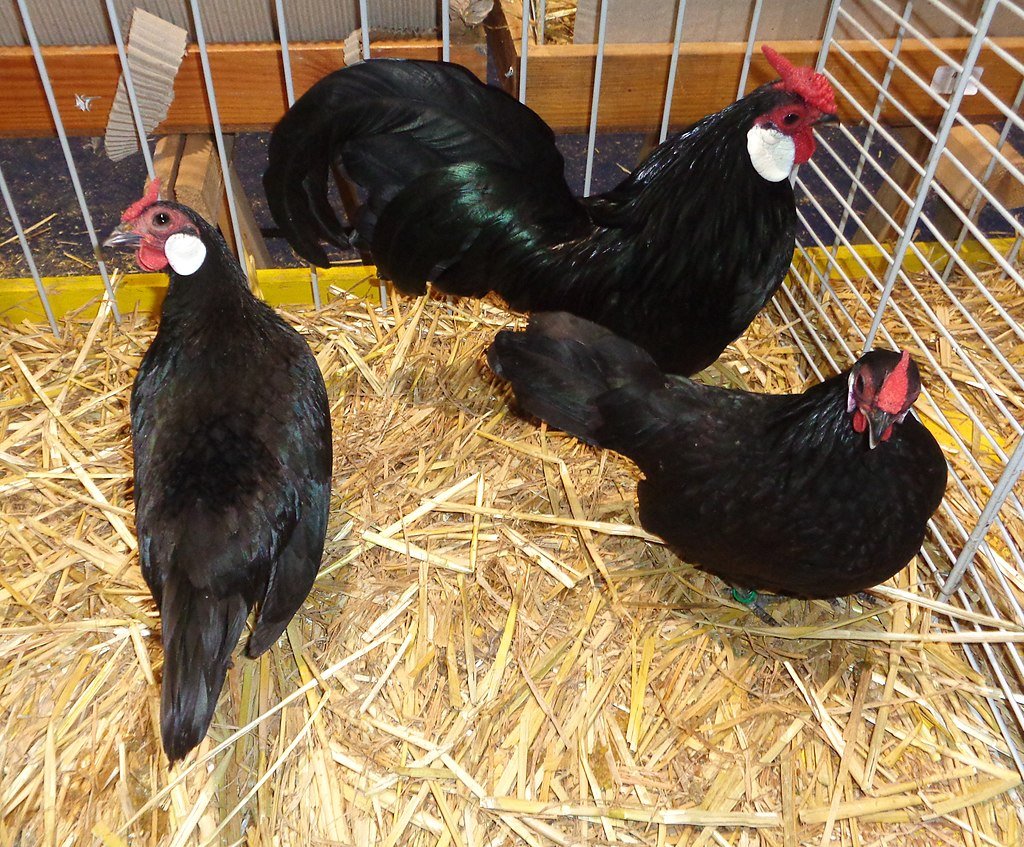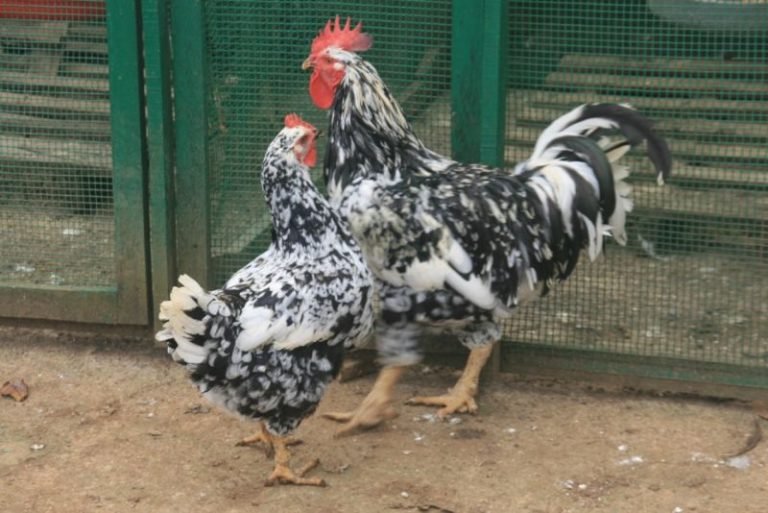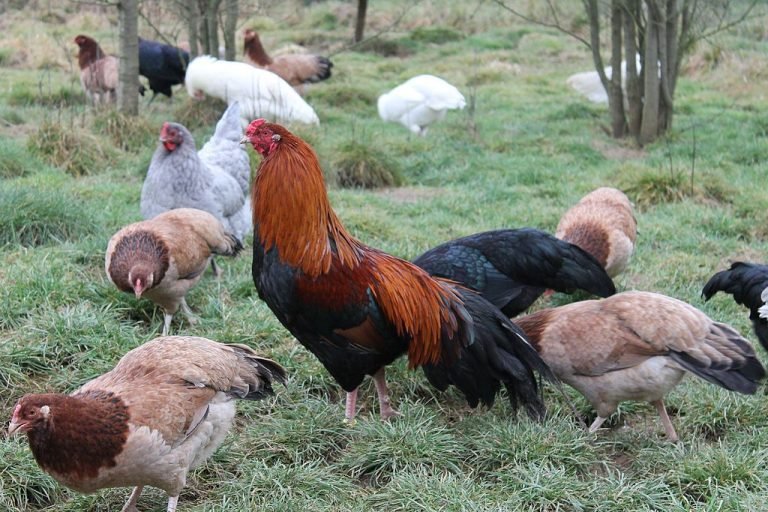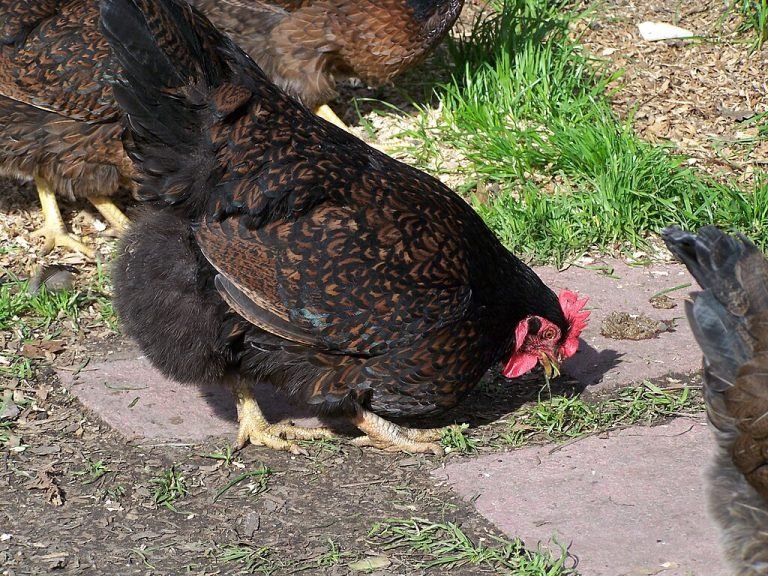The Java chicken breed is a heritage breed known for its beauty and hardiness. Originating in the United States, this breed is popular for its striking appearance and adaptability to different climates.
With its unique and colorful plumage, the Java chicken adds a touch of elegance to any flock. These chickens are also known for being excellent foragers and good egg layers. Whether you are a beginner or an experienced chicken enthusiast, the Java chicken breed is sure to be a delightful addition to your flock.
History
The Java chicken breed is a popular choice among poultry enthusiasts due to its fascinating history, hardiness, and dual-purpose nature. This breed boasts several unique characteristics and has a rich heritage that makes it a captivating addition to any flock. In this section, we will delve into the history of Java chickens, exploring their origins, development, and significant attributes.
Origins And Development
- Java chickens trace their roots back to the United States during the mid-19th century.
- Derived from Asian chickens, Javas were initially developed in the Java province of Indonesia.
- Upon arriving in the United States, the breed was further enhanced through selective breeding with chickens like the Black Cochin, Malay, and others.
- The development of Java chickens aimed to create a versatile breed that excelled in both egg production and meat quality.
Distinctive Features
- Size: Javas is considered one of the largest heritage chicken breeds, with roosters weighing around 9-10 pounds and hens weighing around 7-8 pounds.
- Feathers: They exhibit beautiful plumage, with glossy black feathers in the Black Java variety and stunning reddish-brown feathers with black tail feathers in the Mottled Java variety.
- Temperament: Javas have a calm and docile nature, making them a favorite among backyard chicken keepers.
- Dual Purpose: They are highly regarded for their dual-purpose capabilities, excelling in both egg production and meat quality.
- Hardy and Adaptive: Javas are known for their resilience and adaptability to various climates, making them suitable for different regions.
Significance And Popularity
- Historical Importance: Java chickens hold a significant place in American history, with their popularity peaking in the 19th and early 20th centuries.
- Exhibition Poultry: Javas have been exhibited at numerous poultry shows, with their exceptional size and distinctive appearance earning them accolades.
- Conservation Efforts: Despite facing a decline in numbers during the 20th century, dedicated breeders and enthusiasts worked diligently to revive the Java breed and ensure its continued existence.
Java chickens are an intriguing breed with a rich history and several distinctive attributes. Originating in the United States but deriving from Indonesian roots, Javas have stood the test of time and continue to captivate poultry enthusiasts worldwide. Their large size, beautiful plumage, dual-purpose nature, and hardiness make them an excellent addition to any flock.
Whether you’re a backyard chicken keeper or a poultry show enthusiast, the Java breed’s charm and versatility are sure to impress.

General Characteristics
The Java chicken breed is known for its distinctive appearance and friendly nature. With its beautiful black plumage and red comb, this breed is a popular choice for backyard chicken enthusiasts. They are excellent egg layers and make a wonderful addition to any flock.
Java chickens are a fascinating breed known for their striking appearance and unique heritage. Here are some notable characteristics of Java chickens:
- Size: Javas are large fowl, with males weighing around 9-10 pounds and females weighing about 7-8 pounds.
- Plumage: They boast beautiful, glossy feathers that come in two color varieties: Black and Mottled. The Black Javas exhibit lustrous, coal-black plumage, while the Mottled Javas showcase predominantly white feathers with black spots.
- Vigor: These chickens are robust and resilient, well-equipped to handle various weather conditions, including colder climates. They are active foragers and tend to be quite hardy.
- Temperament: Javas are known for their gentle and calm nature, making them excellent additions to a backyard flock. They tend to get along well with other chickens and are generally reliable and docile.
- Dual-purpose: Java chickens are prized for their excellent egg-laying abilities as well as their meat quality. While they may not lay as many eggs as some commercial breeds, they are reliable layers of large brown eggs.
- Preservation: As one of the oldest American chicken breeds, Javas hold significant historical value. They were once popular in the 19th century but faced near extinction in the 20th century. Fortunately, dedicated breeders have worked to revive this heritage breed.
Java chickens are a captivating breed known for their large size, striking plumage, gentle temperament, and dual-purpose capability. Their historical significance and resilience make them a cherished addition to any backyard flock.
Temperament
The Java chicken breed is known for its calm and docile temperament, making it a popular choice among backyard chicken keepers. Their friendly nature makes them easy to handle and a great addition to any flock. Also, these chickens are highly adaptable and can thrive in various environments.
Java chickens are known for their unique characteristics and interesting features. One of the key aspects that sets them apart from other breeds is their temperament. Understanding the temperament of Java chickens is essential for anyone considering raising them. Here, we will delve into their temperament, shedding light on their behavior and personality traits.
Friendly And Docile
- Java chickens are renowned for their friendly and docile nature. They are known to be gentle and calm, making them an excellent choice for families with children or an existing flock of chickens.
- These chickens are usually very sociable and enjoy interacting with humans, which makes them easy to handle and train.
- Their docile temperament also allows them to coexist harmoniously with other chicken breeds, minimizing the chances of conflicts within your flock.
Intelligent And Inquisitive
- Java chickens are highly intelligent and curious creatures. They have a natural tendency to explore their surroundings, always on the lookout for new things.
- With their inquisitive nature, they are quick to discover and investigate their surroundings, making them attentive and observant chickens.
- Their intelligence also enables them to learn and adapt quickly to their environment, making them an interesting breed to work with.
Excellent Foragers
- Known to be excellent foragers, Java chickens possess a strong instinct for seeking out their food. They will eagerly scratch and peck at the ground, looking for insects, seeds, and other edible treats.
- Their exceptional foraging skills not only benefit them physically but also provide entertainment and enrichment, as they actively engage with their surrounding environment.
Independent And Robust
- Java chickens have an independent streak, which can be attributed to their long history as a free-ranging breed. They are self-reliant and require minimal human intervention.
- Due to their robust nature, Java chickens are generally hardy and adaptable to various climates, making them suitable for different geographical regions.
- The combination of their independence and robustness makes them a low-maintenance breed, making them ideal for novice chicken keepers.
Java chickens exhibit a friendly, docile, and sociable temperament, allowing them to integrate well into a flock and harmonize with other chicken breeds. Their intelligence, inquisitiveness, and foraging skills make them dynamic and engaging birds to interact with. Alongside their independent nature and robustness, Java chickens are an excellent choice for chicken enthusiasts of all levels.
Whether you are a seasoned chicken keeper or a beginner looking for an easy-going breed, the Java chicken’s temperament is sure to make a positive impact on your flock.
Comb Types
The Java chicken breed, known for its elegant appearance and vibrant plumage, also showcases unique comb types. These comb types not only contribute to their distinctive look but also serve practical purposes. Here’s a closer look at the different comb types found in Java chickens:
Single Comb
- This is the most common comb type among Java chickens.
- It has a single ridge that runs from the beak to the back of the head.
- Their vibrant red color is particularly striking against their colored feathers.
- The Single Comb is well-suited for warmer climates due to its ability to release heat efficiently.
Pea Comb
- The Pea Comb is characterized by three distinct ridges with a comb resembling a pea pod.
- This type of comb has excellent cold-weather tolerance.
- The smaller size of the Pea Comb makes it less prone to frostbite in extremely low temperatures.
- Its compact size also makes it less susceptible to injury compared to larger combs.
Rose Comb
- The Rose Comb is more rounded and resembles the shape of a rose petal.
- It is wider than the Single Comb, with a broader base and shorter height.
- This comb type is known for its increased protection against frostbite, making it ideal for colder climates.
- The absence of sharp corners or points on a Rose Comb helps prevent injuries and reduces the risk of pecking injuries from other chickens.
Cushion Comb
- The Cushion Comb is a unique type with a cushion-like appearance.
- It is rounded and smooth, lacking any ridges or spikes.
- The Cushion Comb is preferred by many breeders for its exquisite and unusual appearance.
- This comb type is also more resistant to frostbite than other types, making it suitable for colder regions.
Strawberry Comb
- The Strawberry Comb is characterized by its small, compact size and unconventional shape.
- It has a small, round base with a raised center resembling the shape of a strawberry.
- Although not as common as other comb types, it adds a distinctive flair to the Java chickens’ overall appearance.
Java chicken breeds exhibit a wide range of comb types, each with its unique characteristics and functional benefits. Whether it be the Single Comb’s striking appeal, the Pea Comb’s cold tolerance, the Rose Comb’s frostbite protection, the Cushion Comb’s exotic appearance, or the Strawberry Comb’s unconventional charm, these comb types reflect the versatility and charm of Java chickens.
Conclusion
To sum up, the Java Chicken breed is an excellent option for poultry enthusiasts who are looking for a unique and beautiful addition to their flock. These birds are not only visually stunning with their rich colors and unique feather patterns, but they also have a friendly and gentle disposition.
The Java Chicken breed is adaptable to various climates and can thrive in both backyard and farm settings. With their ability to forage and their excellent egg-laying capabilities, they are an ideal choice for those who are interested in sustainable poultry practices.
Additionally, the historical significance of the breed adds to its appeal for heritage breed enthusiasts. Whether you are a beginner or an experienced chicken raiser, adding Java Chickens to your flock can be a rewarding and enjoyable experience. So, consider adding these stunning birds to your flock and enjoy the many benefits they offer.






